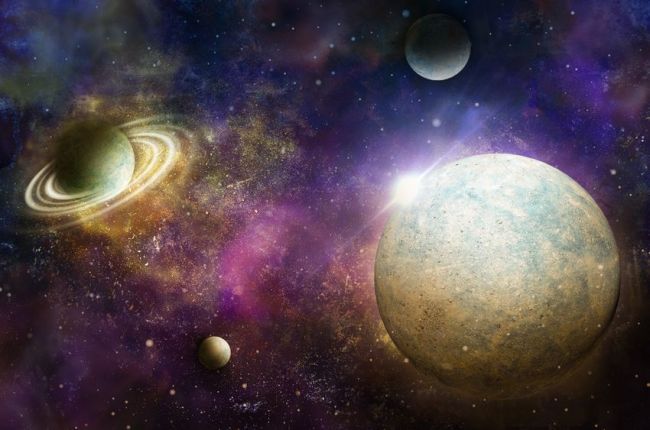U.S. astronomers say a study suggests planets are in fact the cosmic norm and estimate the Milky Way galaxy contains at least 100 billion planets.
A team of astronomers at the California Institute of Technology made the estimate while analyzing planets orbiting a star called Kepler-32, worlds they say are representative of the vast majority in the galaxy and are a perfect case study for understanding how most planets form.
Kepler-32's planets were detected by the Kepler space telescope, and the researchers have analyzed the five-planet system and compared it to other systems found by the Kepler mission, a Caltech release reported Thursday.
Kepler-32 is an M dwarf, a type that accounts for about 75 percent of all stars in the Milky Way, and its planets are typical of the class of worlds the telescope has discovered orbiting other such stars.
It's a system astronomers say will help in understanding planet formation in general.
"I usually try not to call things 'Rosetta stones,' but this is as close to a Rosetta stone as anything I've seen," planetary astronomy Professor John Johnson said. "It's like unlocking a language that we're trying to understand -- the language of planet formation."
Based on their study of Kepler-32, the astronomers have calculated that there is, on average, one planet for every one of the approximately 100 billion stars in the Milky Way.
"There's at least 100 billion planets in the galaxy -- just our galaxy," Johnson said. "That's mind-boggling." (UPI)
<관련 한글 기사>
은하수의 비밀을 열 ‘열쇠’ 찾았나
미국의 천문학자들이 우리 은하 (Milky way: 은하수) 내 대표적인 행성계 (planetary system)을 연구한 끝에 은하수 내에 약 1천억 개의 행성이 있다는 가설에 도달했다고 UPI통신이 보도했다.
캘리포니아 공과대학교 (California Institute of Technology: 칼텍)의 연구진들은 케플러-32이라는 이름의 적색 왜성 (M dwarf: red dwarf) 주위를 공전하는 행성들을 분석한 끝에 이를 밝혀냈다.
연구진에 따르면 케플러-32 주위에 형성된 행성계는 은하수 내에 있는 대부분의 행성계를 대표할 만큼 전형적인 구성이기 때문에 행성들의 형성을 연구하는데 있어 완벽한 사례연구가 될 수 있다고 한다. 은하수 내에 있는 항성들의 약 75%가 적색 왜성인 것으로 알려졌다.
칼텍 연구진은 3일 (현지시간) 발표한 자료를 통해 케플러 우주 망원경을 이용해 케플러-32의 행성들을 관찰했고, 이 결과를 다른 행성계와 비교했다고 밝혔다.
“저는 로제타석 (Rosetta stone: 불가사의, 미지의 것을 이해하는데 중요한 열쇠)이란 표현을 잘 쓰지 않으려고 합니다만, (케플러-32 행성계는) 제가 본 것 중에 로제타석에 가장 가까웠습니다”라고 행성천문학 교수 존 존슨이 말했다.
“마치 우리가 이해하려고 애써온 언어를 해독하는 듯 했어요. 행성의 형성이란 언어를 말이죠”라고 존슨 교수는 덧붙였다.
연구진은 케플러-32의 연구에 기반해 은하수 내에 있는 1천억 개의 항성이 평균적으로 1개의 행성을 거느리고 있다고 추정했다.
“우리 은하계만 하더라도 최소한 1천억 계의 행성이 있는 겁니다. 정말 놀랍죠”라고 존슨은 말했다. (코리아헤럴드)
 |
(123rf) |


![[Herald Interview] 'Korea, don't repeat Hong Kong's mistakes on foreign caregivers'](http://res.heraldm.com/phpwas/restmb_idxmake.php?idx=644&simg=/content/image/2024/11/13/20241113050481_0.jpg)
![[KH Explains] Why Yoon golfing is so controversial](http://res.heraldm.com/phpwas/restmb_idxmake.php?idx=644&simg=/content/image/2024/11/13/20241113050608_0.jpg)



